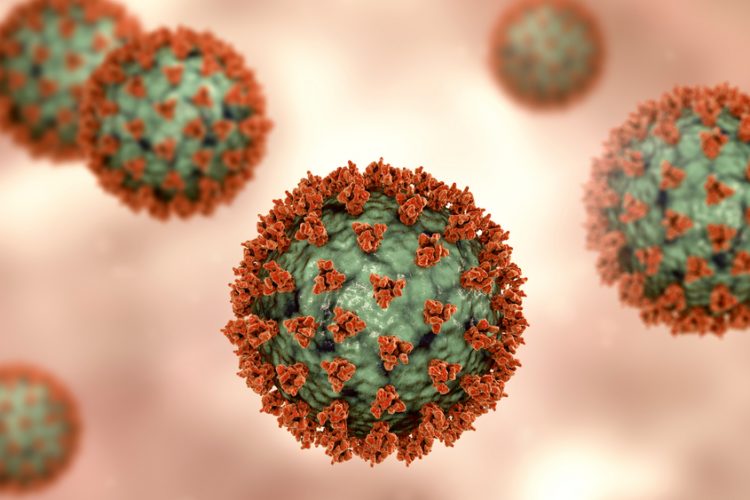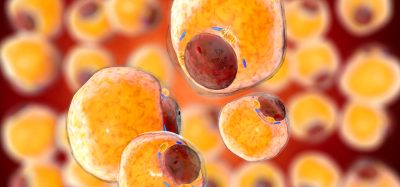AI holds promise to accelerate drug repurposing for COVID-19
Posted: 20 August 2020 | Victoria Rees (Drug Target Review) | No comments yet
According to a new report, artificial intelligence (AI) is vital for the rapid identification of drugs that can be repurposed to combat COVID-19.


Of the approaches available to find new therapies to treat COVID-19, drug repurposing is one of the fastest and safest methods, as the drugs are already being used to treat other conditions, says a report from Globaldata. Therefore, this method will lead to fewer chances of adverse reactions.
The outlet says that in particular, artificial intelligence (AI) holds significant promise for biopharmaceutical companies to expedite the drug repurposing process.
Venkata Naveen, Senior Disruptive Tech Analyst at GlobalData, commented: “Typically developing a new drug takes almost a decade and costs anywhere between $2 billion to $3 billion. But now biopharmaceutical companies are in dire need to accelerate the entire drug development process given that COVID-19 cases and deaths are mounting every day. Under these circumstances, AI technologies allow companies to significantly shorten the pre-clinical drug identification and design process from several years to a few days or months.”
According to the outlet, the Innovation Explorer database of its Disruptor Intelligence Center reveals how AI startups are assisting in the identification of suitable molecules that target COVID-19.
BenevolentAI
London-based BenevolentAI used its AI-based drug discovery platform to identify drugs that could disrupt certain viral entry pathways of COVID-19, thus inhibiting the replication process. The startup extracts new hypotheses by employing AI to its knowledge graphs, which establishes billions of machine curated relationships between diseases and drugs.
Researchers screened inhibitors of AP2-associated protein kinase 1 (AAK1). AAK1 is a known regulator of endocytosis and its disruption may inhibit the entry of the virus into cells. In a process that took three days, over 370 AAK1 inhibitors were identified, 47 of which are approved for use, with six showing the most promise.
This included baricitinib, currently marketed by Eli Lilly as Olumiant to treat rheumatoid arthritis in adults; the company has initiated a Phase III randomised controlled trial of baricitinib in 400 hospitalised adults with COVID-19. Meanwhile, the US National Institute of Allergy and Infectious Diseases (NIAID) is also running a study of baricitinib with remdesivir in the second phase of the Adaptive COVID-19 Treatment Trial (ACTT-2).
Elix
Japanese startup Elix harnessed a variety of neural networks to predict the chemical properties of molecules that can help to destroy COVID-19. The startup’s AI tool screened a library of 350 million drug-like molecules to find potential drugs to treat COVID-19. Among the drug candidates identified by Elix’s AI tool was remdevisir, which recently received emergency use authorisation from the US Food and Drug Administration (FDA) to treat COVID-19 patients.
Gero
Singapore’s Gero leveraged AI to quickly screen already existing drug molecules to treat COVID-19. Some of the identified drugs that are potentially effective include niclosamide, nitazoxanide, afatinib and reserpine. The startup is currently exploring partnerships with pharma companies and research institutes for the commercial development and immediate start of clinical trials of the identified drug molecules.
Other partnerships
In addition, startups such as Repurpose.AI and Atomwise are actively forging partnerships with global research institutes to use their AI-powered predictive models to find new drug molecules for the treatment of COVID-19.
Naveen concluded: “AI startups are helping pharma companies to digitally bridge the gap between thousands of repurposed drug molecules, clinical trials and final drug authorisation. The COVID-19 crisis has propelled the interest of venture capital firms in AI startups due to their potential to accelerate the process of finding new therapies. For example, Atomwise, Gero, Insitro and Exscientia have all raised hefty sums in various stages of funding in the first two quarters of 2020.”
Related topics
Artificial Intelligence, Drug Discovery, Drug Leads, Drug Repurposing, Hit-to-Lead, Informatics, Screening, Technology, Therapeutics
Related conditions
Coronavirus, Covid-19
Related organisations
Atomwise, BenevolentAI, Eli Lilly and Company, Elix, Gero, GlobalData, Repurpose.AI, US Food and Drug Administration (FDA), US National Institute of Allergy and Infectious Diseases (NIAID)
Related people
Venkata Naveen








